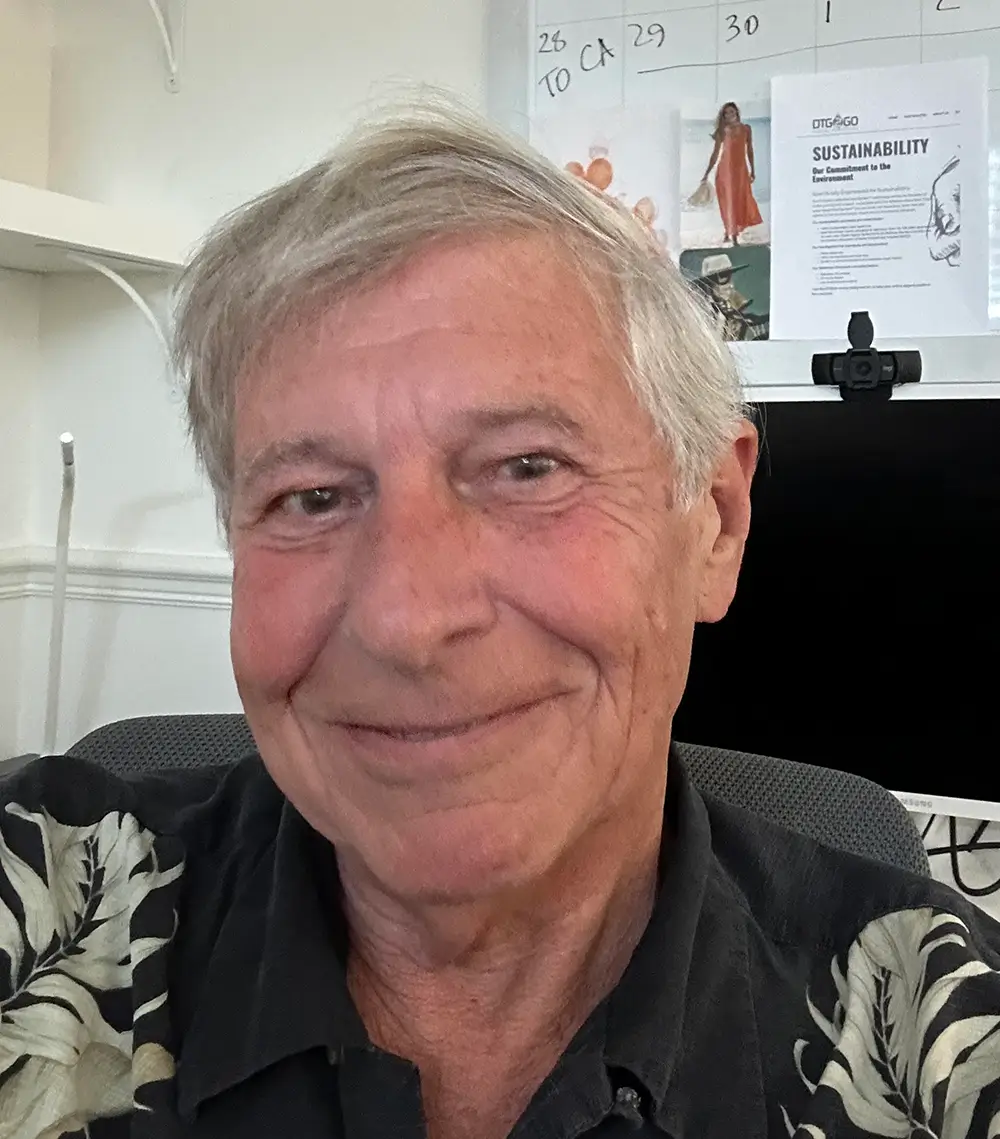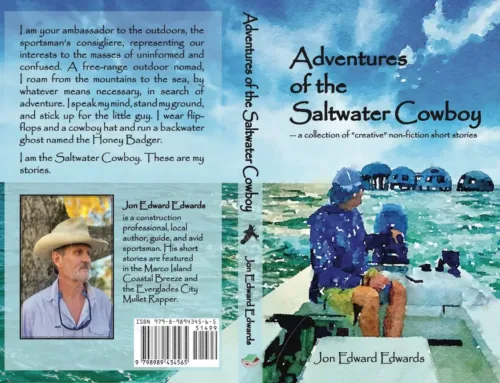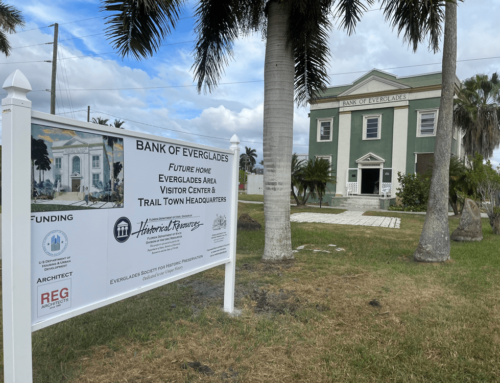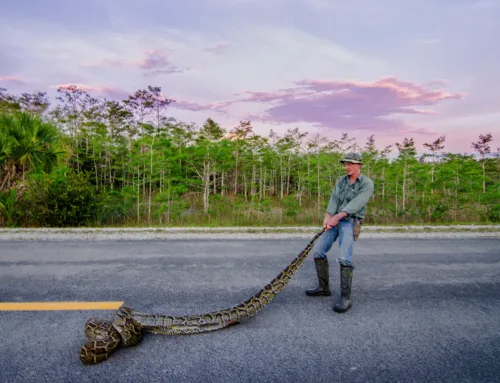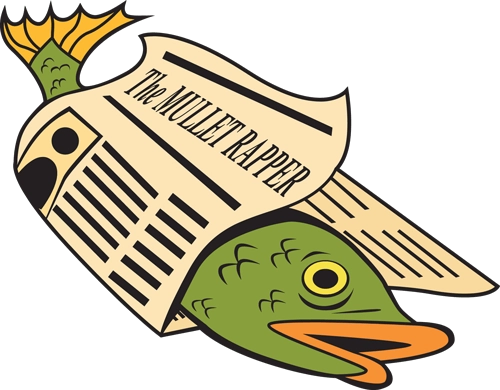by Ray Bearfield | Collier County Waterkeeper
“It’s an honor to share our commitment to water quality with Mullet Rapper readers.”
The Collier County Waterkeeper, by way of introducing ourselves, is part of an international alliance dedicated to protecting water for generations to come. Here in Collier County, that is no small task given its size.
Nor are the problems from one end to the other always the same. Each region — from the Corkscrew Swamp Sanctuary to the north to the Gordon River watershed to the west, and the Ten Thousand Islands to the south — is unique. Besides our shared concerns, each has unique special issues. We first became active in the Everglades City region when we contributed to the public comment on a master plan for management of the Green Heart of the Everglades, which the South Florida Water Management District purchased from private interests. No one knows better than the citizens of Everglades City what a two-edged sword the purchase of “conservation” lands can be. From the establishment of Everglades National Park to the formation of the Big Cypress National Preserve, what is justified as an act serving the “greater good” can have a calamitous effect on individuals whose connection to a special place predate that official recognition.
For that reason, and because the Waterkeeper is committed to protecting not only the quality of water, but the culture of the communities that depend on that water, we spoke out strongly in favor of allowing airboat operators to continue to work in the new “preserved” area.
In the course of those discussions, we met Stephen Lenz. And it was an item of his we saw on our Facebook page that prompts this, our first public outreach to the Mullet Rapper readers and the citizens of the county’s original capital.
Stephen posted a picture of a fence constructed by a boater in Australia who had been ordered by the city in which he resided to spare passersby the sight of his boat parked beside his home.
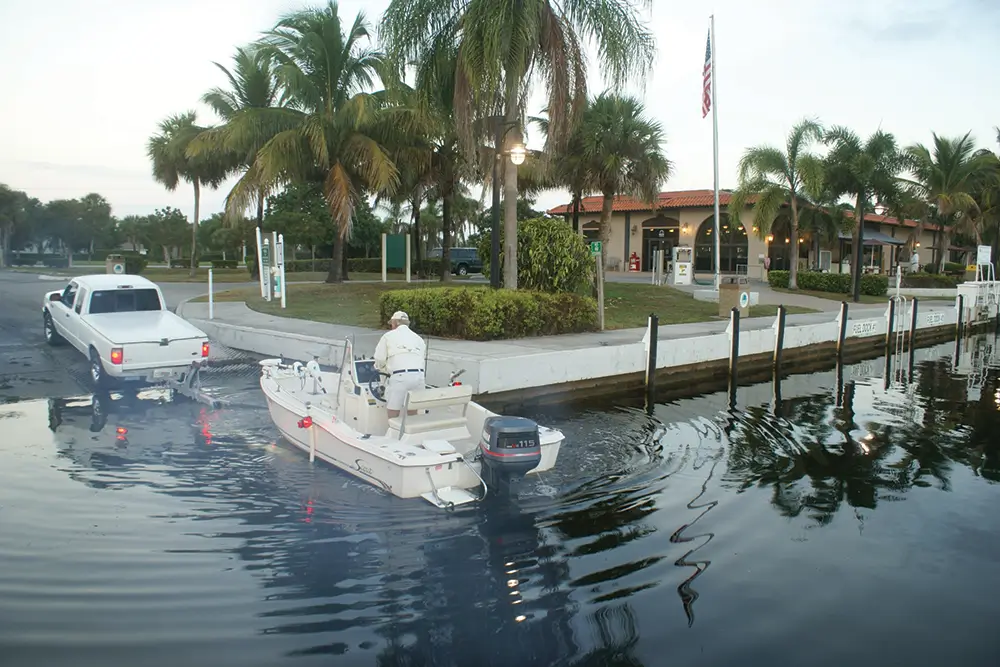
The issue struck a chord with me. I went round and round with code enforcement officers in Naples, back in my guiding days, about the same thing.
See, Naples, which used the “quaint fishing village” myth for so long it eventually died of old age and newer and fancier places to spend tons of money, didn’t allow residents to put a boat where it could be seen.
I couldn’t get my skiff behind my house. The best I could do was put it along the side, behind a big stand of banana plants and essentially invisible to everyone but — you guessed it — the code enforcement guy whose mission in life was to make sure that the former quaint fishing village didn’t reveal its roots by letting a boat show.
The fellow in Australia, according to Stephen’s post, was more clever than I proved to be. He put up the fence, then hired an artist to paint on that fence a scene that looked exactly like his boat parked beside his house.
Touché.
I’m using that example because we believe it’s important to protect Collier County’s original culture in the face of pressure by new arrivals to conform to ideals they lived with elsewhere and seek to import.
At one meeting about the Green Heart management plan, a new resident, who identified as a former Colorado resident, warned the Everglades airboat community of the fight he was willing to lead to stamp out airboat “noise.”
Our take is simple. Everglades City is the last bastion of Collier County’s native culture.
We’ll help you protect it.
Ray Bearfield is a former newspaper editor, environmental writer, and fishing guide who is now the Collier County Waterkeeper. Connect at www.colliercountywaterkeeper.org.
